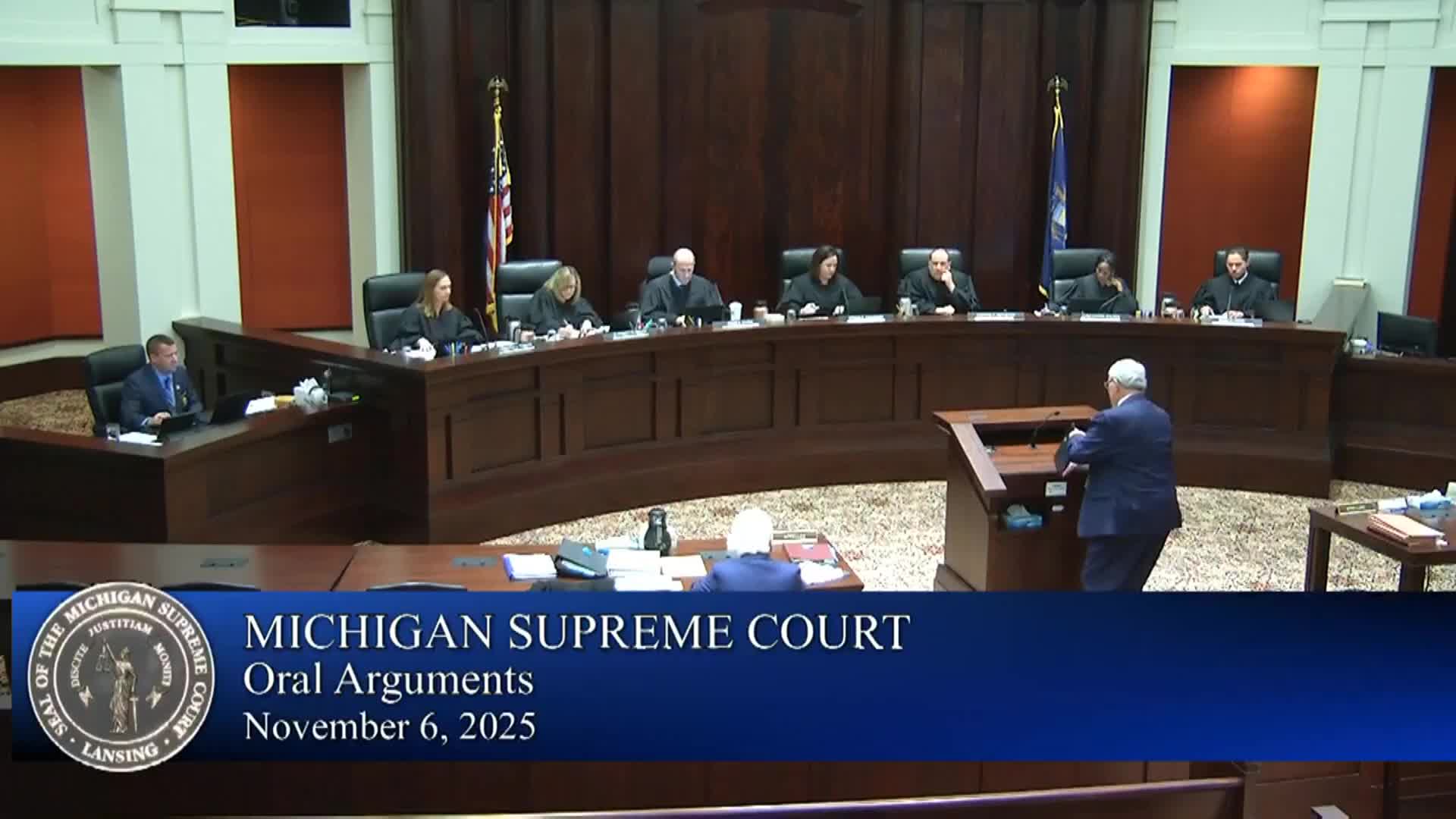Michigan Supreme Court hears whether life insurance and 401(k) paid to a revocable trust can be reached by creditors
Get AI-powered insights, summaries, and transcripts
Subscribe
Summary
The Michigan Supreme Court heard oral argument in consolidated cases (docket 1675012503) over whether life insurance proceeds and 401(k) benefits payable to a decedent's revocable trust can be reached by creditors after the settlor's death.
The Michigan Supreme Court heard oral argument in consolidated cases (docket 1675012503) over whether life insurance proceeds and 401(k) benefits that named a revocable trust as beneficiary are subject to creditors’ claims after the settlor’s death. David Highbre argued for the estate of Jennifer Fowler and the Jennifer Fowler Trust; John McNamee argued for Julie Brooks, personal representative of the estate of Helen Fowler. The justices submitted the case for decision after argument.
Highbre, counsel for the appellant, said the 401(k) was an employment benefit that had not been liquidated during decedent Jennifer Fowler’s life and therefore was not an asset of the trust at the time of death. “The 401(k) plan was a benefit of employment,” Highbre told the court, and under the cited plan and probate rulings the account had protections from creditors while the settlor lived. He also argued the life insurance policy “had no cash value” and was likewise an employment benefit that was not property of the trust at death. Highbre urged the court to read the relevant statutory provisions and trust-code definitions to distinguish a trustee from a personal representative and to decline the Court of Appeals’ reasoning that equated trustees with executors or administrators.
McNamee, arguing for the appellee, said a revocable trust becomes irrevocable on the settlor’s death and that treaty and probate statutory provisions bring proceeds payable to the trust within the scope of property that can be used to satisfy claims once estate assets are insufficient. McNamee told the court that the estate had about $175,000 in probatable assets previously used to litigate and defend the underlying wrongful‑death claim, and that remaining recovery realistically depended on the trust: life insurance proceeds of approximately $440,000 and a 401(k) valued at about $1,100,000. “It is undisputed that Jennifer’s trust was a type of revocable trust,” McNamee said, and he pointed to plan language and statutory definitions he said support treating the proceeds as trust property at death.
Both sides discussed the probate section’s advisory view and the insurance code. The bench asked whether the nature of the claimant (a judgment creditor from a wrongful‑death suit) affected the analysis; McNamee responded that the priority rules for insolvent estates (MCL 700.3805, as cited in argument) apply and, once estate assets are exhausted, claimants may look to revocable‑trust property that becomes subject to claims at death. Highbre countered that Michigan’s statutory exceptions and the trust code’s definitions preclude treating the trustee or the trust itself as equivalent to an individual personal representative in the insurance‑exemption context.
The justices also queried hypothetical situations the parties use to test statutory text: whether naming an individual versus a trust matters, whether a trustee who also serves as personal representative would change the outcome, and how to treat beneficiary lapses. Counsel agreed some fact patterns would be common in estate planning but emphasized that resolution here turns on statutory interpretation and on the specific plan and insurance‑policy terms at issue.
The court took the case under submission after the allotted argument time expired. No decision was announced at argument.
Provenance: Argument transcript (oral argument docket 1675012503) provided the quotations and factual figures cited above.
